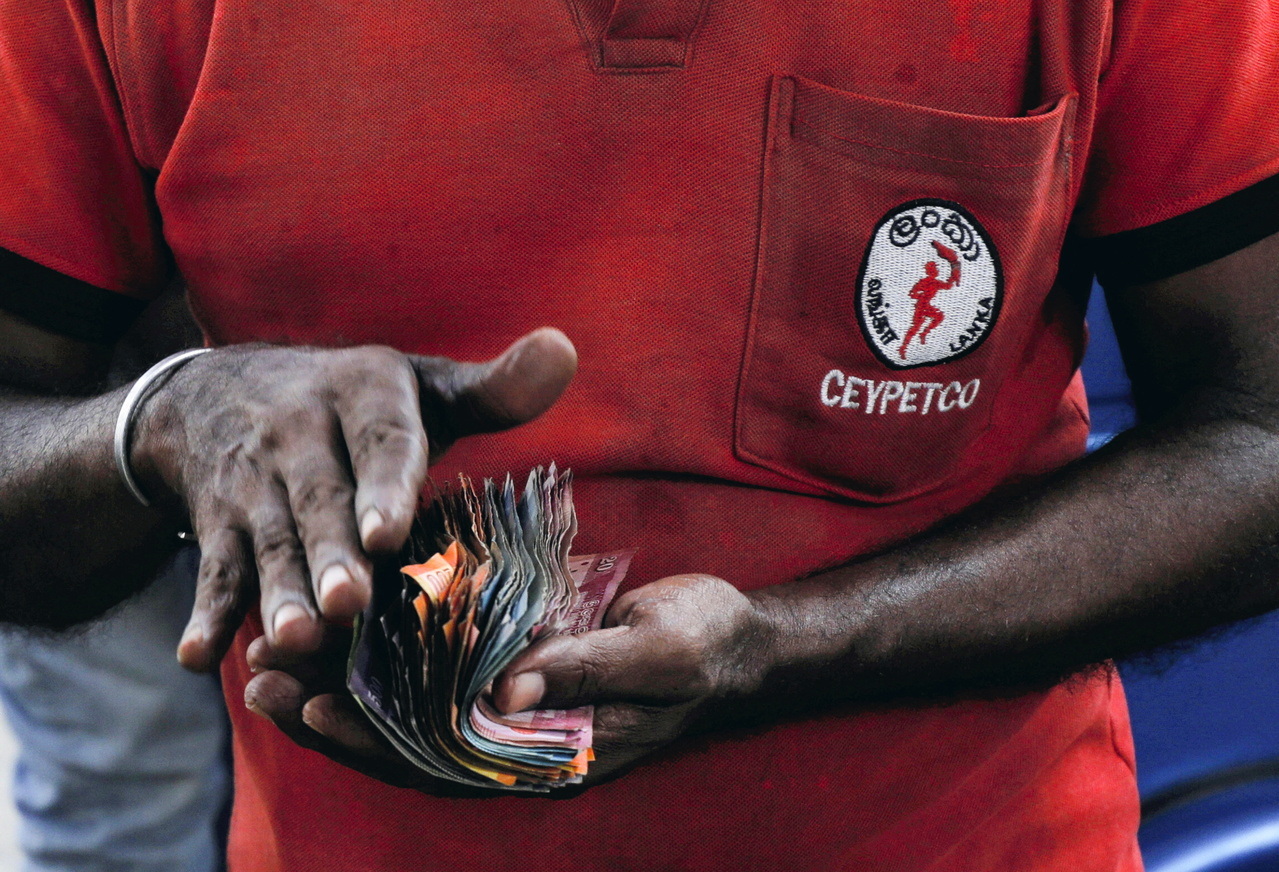Sri Lanka inflation hits record high as crisis worsens
Sign up now: Get insights on Asia's fast-moving developments

A worker holding Sri Lankan currency at a Ceylon Petroleum Corporation fuel station in Colombo, Sri Lanka, on Feb 21, 2022.
PHOTO: REUTERS
COLOMBO (AFP) – Sri Lanka’s inflation hit a record high for the fourth consecutive month, official data showed on Tuesday as an economic crisis driven by a crippling foreign exchange shortage worsens.
The National Consumer Price Index (NCPI) rose 16.8 per cent in January from a year earlier, the fourth consecutive record rise and more than double October’s figure of 8.3 per cent.
The record highs came as the South Asian island struggles to find dollars to finance essential imports, including food, fuel and medicines.
The energy ministry announced on Monday it was struggling to buy fuel on credit and reported shortages at many pumping stations, leading to queues and forcing some to shut.
The ministry said the main state-owned oil company, the Ceylon Petroleum Corporation, was straddled with outstanding debt of US$3.5 billion (S$4.7 billion) and was no longer able to raise new commercial loans.
The main petroleum company is banking on a proposed credit line of US$500 million from the Indian government to procure oil in the coming months, officials said.
In a further blow to the government’s plans to raise much-needed revenue, the Supreme Court on Tuesday shot down a new tax Bill which targeted an additional 50 billion rupees (S$331 million) this year.
The court ruled that the Special Goods and Services Tax – which would have empowered the finance minister to determine rates and sectors to be taxed – was a violation of Parliament’s financial authority.
Sri Lanka’s Cabinet is divided on seeking a bailout from the International Monetary Fund while the opposition has called for restructuring the country’s US$35 billion external debt to overcome the shortage of foreign exchange.
The worsening economic crisis has already led to food rationing with supermarkets restricting the quantity of rice, milk powder, sugar, lentils and tinned fish sold to consumers.
Many pumping stations have also rationed fuel issued to motorists in the provinces.
Sri Lanka’s economy has collapsed since the onset of the pandemic, with a nosedive in tourism revenue as well as foreign worker remittances.
International rating agencies have downgraded Sri Lanka over expectations it may not be able to service its foreign debt. The government insists it can meet its obligations.


